12 Anti-Racist Books to Read Thoughtfully and Thoroughly
As readers and citizens, we must compel ourselves to read as a form of resistance.
Books Lists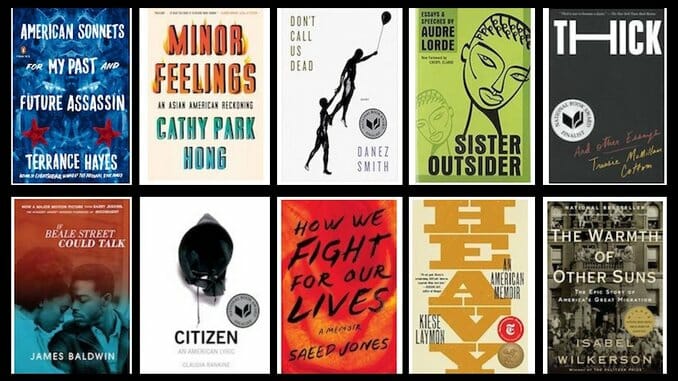
We live in a moment submerged in grief and outrage. The unjust murders of George Floyd, Brianna Taylor, Elijah McClain, and countless others, whose lives were stolen by racist, unchecked systems within the United States are not only a call to anger, but also to action. As readers and citizens, we must compel ourselves to read as a form of resistance. This list’s curation prioritizes centering brilliant voices within targeted communities, speaking both to the factual truth and emotional weight of living as a minority within this country. We hope you will read thoughtfully and thoroughly.
![]()
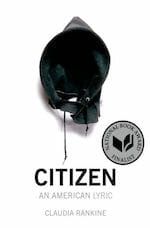 1. Citizen by Claudia Rankine
1. Citizen by Claudia Rankine
As Rankine’s fifth book of poetry, Citizen reads as the work of an accomplished poet with her fingers painstakingly on the pulse. Centering itself around themes of race and the imagination, Rankine explores the radical potential of lyrically capturing the lived Black experience with a documentararian’s gaze. With literary pathways pointing from this collection straight back to Walt Whitman’s “Song of Myself,” Citizen’s positioned to become another major American lyric touchstone.
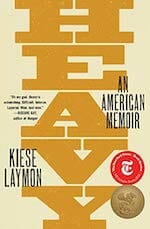 2. Heavy by Kiese Laymon
2. Heavy by Kiese Laymon
Even before controversies arose over the utility or even the dubious intentions of antiracist reading lists, Laymon had already documented the problem at the root of the American imagination: “the most abusive parts of our nation obsessively neglect yesterday while peddling in possibility. I remembered that we got here by refusing to honestly remember together.” Heavy doesn’t afford its readers that type of blissful ignorance. Through his prose that would be already classified as beautiful beyond the heavy wisdom it carries, Laymon is a luminous voice that demands centering.
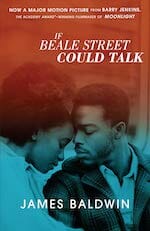 3. If Beale Street Could Talk by James Baldwin
3. If Beale Street Could Talk by James Baldwin
Baldwin’s scholarship and fiction only become more validated as time passes, especially now. If Beale Street Could Talk, recently adapted for film and directed by Barry Jenkins, follows a young Black couple, Fonny and Tish, trying to chase their love story in Harlem until their world shatters—Fonny becomes falsely accused of rape. Baldwin incisively showcases the ramifications of one cruel accusation, the pain it causes an entire community, and the unflinching and incredible capacity for humans to love each other under extreme duress.
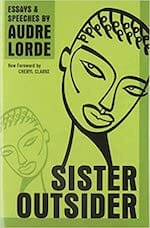 4. Sister Outsider by Audre Lorde
4. Sister Outsider by Audre Lorde
If you’ve read recently that “the master’s tools will never dismantle the master’s house” on Twitter, then it’s time to pay homage to Audre Lorde, a Black feminist thinker who consistently sets the par for artistic expression and scholarship. Sister Outsider’s essays mirror the title itself, focusing on the singular experience of being on the fringes society. Credited with investigating interlocking social conditions of race, class, sexuality, age, and ability with ease and precision, Lorde is an unmissable read for any new scholar of social justice and consciousness.
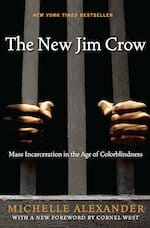 5. The New Jim Crow by Michelle Alexander
5. The New Jim Crow by Michelle Alexander
For watchers of Ava DuVernay’s 13th, Michelle Alexander is a familiar face. The New Jim Crow tackles the shifting nature of institutionalized racism of the United States, stripping bare the narrative that after the Emancipation Proclamation slavery ceased to exist in United States. Armed with legal, historical, and sociological analysis, Alexander dismantles faulty understandings of the American justice system and reaffirms its complicity in creating the new incarcerated underclass.
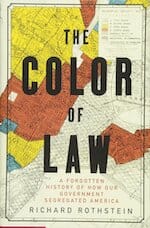 6. The Color of Law by Richard Rothstein
6. The Color of Law by Richard Rothstein
While FDR’s legacy paints him as one of the most progressive American presidents, the aftermath of some of his policies casts a dark shadow into the present. This book follows the fallout from red-lining, the systemic refusal of federal services, especially in terms of access to credit and insurance in housing. Given that the majority of American’s wealth is bound up in home value, Rothstein delivers a crushing analysis of the communities excluded from reaping federally insured loans after the Depression market crash on the basis of race, creating a housing and wealth gap that resonates well into the present moment. Read to learn that what and where you call home isn’t just personal, it’s political.
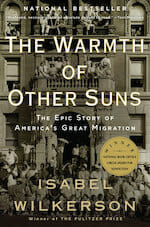 7. The Warmth of Other Suns by Isabel Wilkerson
7. The Warmth of Other Suns by Isabel Wilkerson
A book written by the first Black woman to win the Pulitzer Prize for Journalism, Wilkerson narrates the story of the Great Migration of African Americans from 1916 to 1970 within the United States from the South to the Northward. An often unknown history, Wilkerson pulls back the veil on this epic movement of people, deploying personal narratives of real travelers adventuring to find new lives within the great expanse of this country. Come for the intricate stories of grit and determination, stay for the full-bodied understanding of the meaning of home.
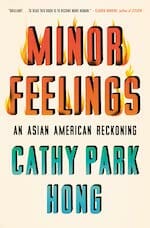 8. Minor Feelings: An Asian American Reckoning by Cathy Park Hong
8. Minor Feelings: An Asian American Reckoning by Cathy Park Hong
While this country is undergoing a reckoning about white supremacy, the nature of race relations within the United States refracts into much more nuanced negotiations of race and class beyond a simple binary. Enter Cathy Park Hong, who breaks down the uneasy status of Asian Americans in America: “Asian Americans inhabit a vague purgatorial status … distrusted by African Americans, ignored by whites, unless we’re being used by whites to keep the black man down.” Confronting how Asian Americans’ status keeps them both displaced and used as pawns within a wider war controlling the boundaries and barriers of whiteness, Hong holds her eye steady at contradictions and possibilities of living as Asian American.
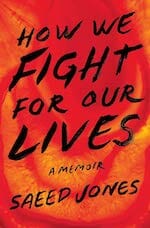 9. How We Fight for Our Lives by Saeed Jones
9. How We Fight for Our Lives by Saeed Jones
Saeed Jones, an artist of many trades—memorist, poet, journalist, Twitter icon—can wreck you with few words. Once scoffed at for the idea of writing a memoir at his young age, Jones blew the critics away with account of growing up black and queer in a country and community primed to reject him. In his own words, “There should be a hundred words in our language for all the ways a black boy can lie awake at night.” To read Jones is to be kept similarly awake by the power of his words—don’t miss it.
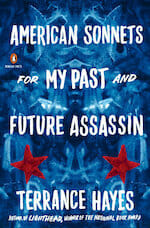 10. American Sonnets for My Past and Future Assassin by Terrance Hayes
10. American Sonnets for My Past and Future Assassin by Terrance Hayes
Published after the election of Donald Trump to the Presidency, Hayes uses the confines of poetic form to explode out his grief and anger at the myriad ways violence looms over Black men in the United States. In these tightly wound sonnets, Hayes swivels through multiple options for who can be an assassin in this country — lynch mobs, white women taking photos, even himself. A master at compressive lyric tensions, these poems seeth with questions and burble into profound realizations: “You are beautiful with your sadness, / You would be more beautiful without your fear.”
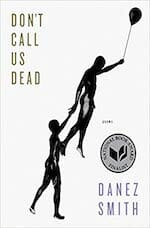 11. Don’t Call Us Dead by Danez Smith
11. Don’t Call Us Dead by Danez Smith
Danez Smith takes no prisoners. A major force within the American spoken word community, Smith commands a control over language only eclipsed by the emotional power of their personal testimonies. Their poems cover everything from police brutality to HIV/AIDS positive status, often blending elements of both together to describe their lived experience under both conditions — “just how / will I survive the little / cops running inside / my veins.” A winner of the Lambda Literary Award for Gay Poetry, Smith’s work demands your attention for its vitality — by no means is their verse dead in any way.
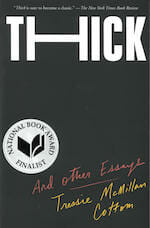 12. Thick by Tressie McMillan Cottom
12. Thick by Tressie McMillan Cottom
Cottom’s essays reside at the border of personal nonfiction and strict scholarship, while demonstrating excellence in both — the emotional truths and knowledge sink into the reader’s brain at a constant rate. From tackling the politics of beauty and race to issues of OB/GYN care for Black women, Cottom spits facts that refuse to placate any critics within or outside her communities. Turn to her when you want to be educated with the subtlety of speaking with a brilliant professor over coffee, absorbing her truisms along the way — you can also catch Cottom on campus at UNC-Chapel Hill.
Purchase at our Bookshop.org page to support PasteMagazine.com and indie bookstores everywhere.
Katherine Smith is the TV intern at Paste Magazine and recent graduate of the University of Virginia.For deeper dive into her current obsessions and hot takes follow her at @kat_marie_tea
For all the latest TV news, reviews, lists and features, follow @Paste_TV.